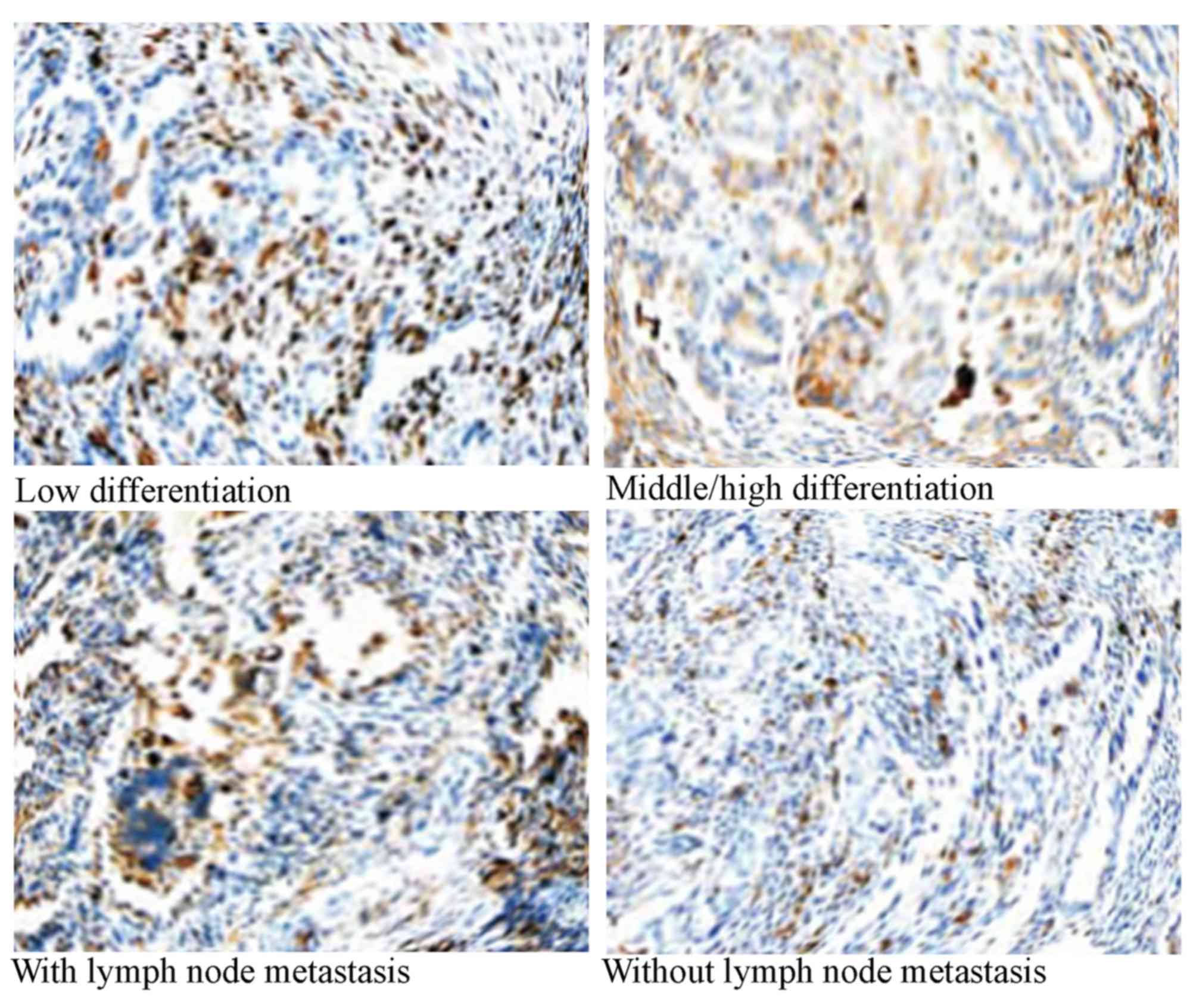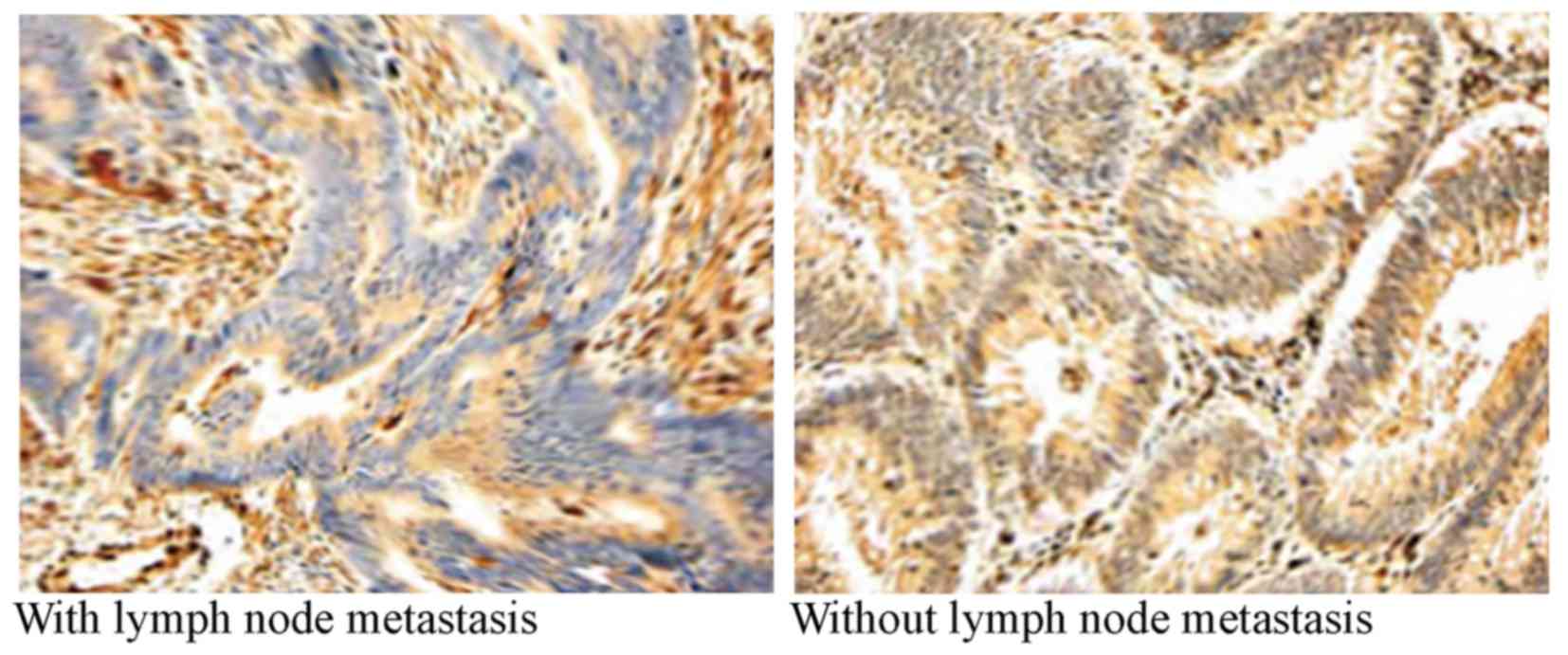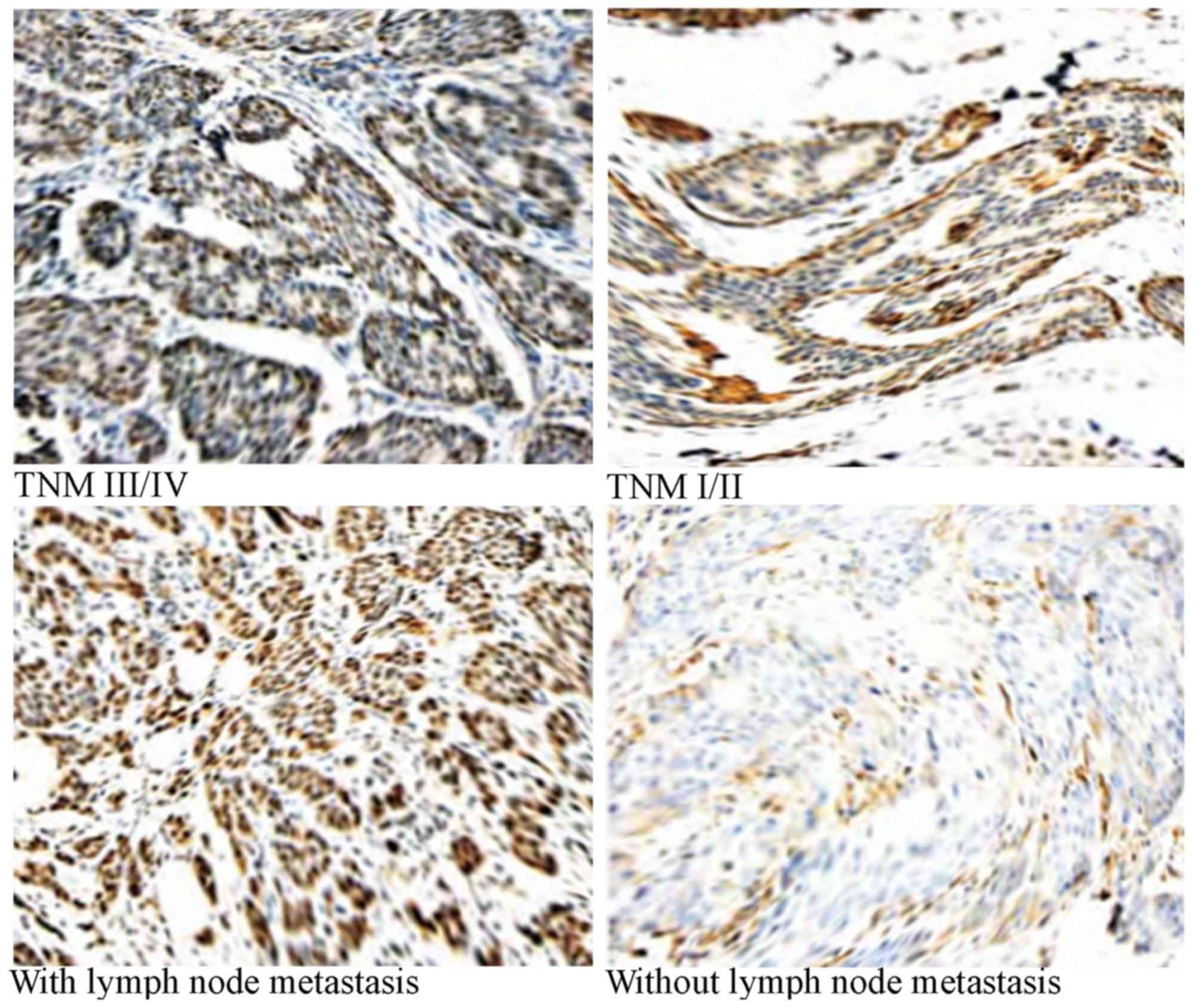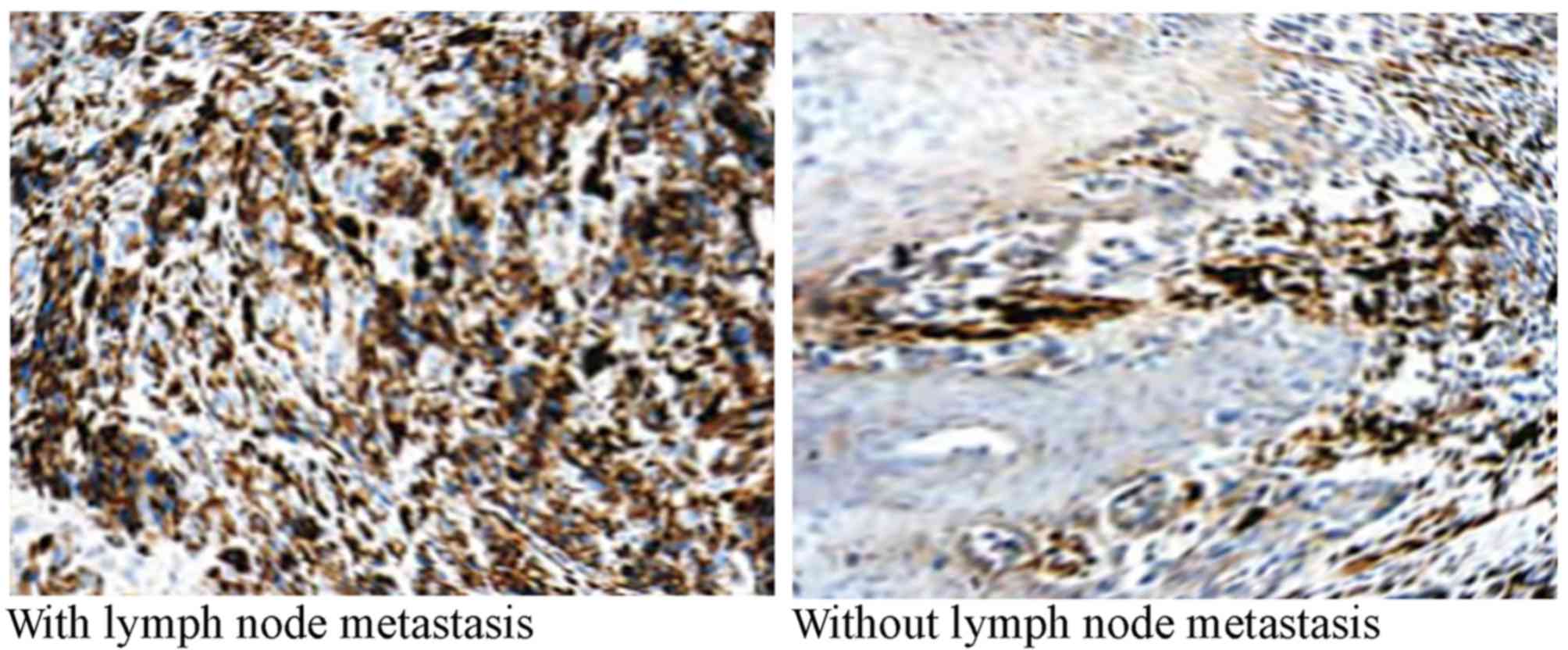|
1
|
Attoub S, Arafat K, Gélaude A, Al Sultan
MA, Bracke M, Collin P, Takahashi T, Adrian TE and De Wever O:
Frondoside a suppressive effects on lung cancer survival, tumor
growth, angiogenesis, invasion, and metastasis. PLoS One.
8:e530872013. View Article : Google Scholar : PubMed/NCBI
|
|
2
|
Chao Y, Li CP, Chau GY, Chen CP, King KL,
Lui WY, Yen SH, Chang FY, Chan WK and Lee SD: Prognostic
significance of vascular endothelial growth factor, basic
fibroblast growth factor, and angiogenin in patients with
resectable hepatocellular carcinoma after surgery. Ann Surg Oncol.
10:355–362. 2003. View Article : Google Scholar : PubMed/NCBI
|
|
3
|
Gospodarowicz D: Fibroblast growth factor.
Chemical structure and biologic function. Clin Orthop Rel Res.
257:231–248. 1990.
|
|
4
|
Montero A, Okada Y, Tomita M, Ito M,
Tsurukami H, Nakamura T, Doetschman T, Coffin JD and Hurley MM:
Disruption of the fibroblast growth factor-2 gene results in
decreased bone mass and bone formation. J Clin Invest.
105:1085–1093. 2000. View
Article : Google Scholar : PubMed/NCBI
|
|
5
|
Wei X: Research advances of basic
fibroblast growth factor in tissue repair. Orthop J Chin.
19:1108–1110. 2011.
|
|
6
|
Presta M, Dell'Era P, Mitola S, Moroni E,
Ronca R and Rusnati M: Fibroblast growth factor/fibroblast growth
factor receptor system in angiogenesis. Cytokine Growth Factor Rev.
16:159–178. 2005. View Article : Google Scholar : PubMed/NCBI
|
|
7
|
Luo CF, Hong HL, Lu YL, Wang H and Liu MQ:
Expression of bFGF and PTEN in cervical carcinoma and their
clinical significance. Zhonghua Zhong Liu Za Zhi. 32:533–538.
2010.(In Chinese). PubMed/NCBI
|
|
8
|
Trojan L, Thomas D, Knoll T, Grobholz R,
Alken P and Michel MS: Expression of pro-angiogenic growth factors
VEGF, EGF and bFGF and their topographical relation to
neovascularisation in prostate cancer. Urol Res. 32:97–1031. 2004.
View Article : Google Scholar : PubMed/NCBI
|
|
9
|
Cucina A, Borrelli V, Lucarelli M,
Sterpetti AV, Cavallaro A, Strom R, Santoro-D'Angelo L and Scarpa
S: Autocrine production of basic fibroblast growth factor
translated from novel synthesized mRNA mediates thrombin-induced
mitogenesis in smooth muscle cells. Cell Biochem Funct. 20:39–46.
2002. View
Article : Google Scholar : PubMed/NCBI
|
|
10
|
Polnaszek N, Kwabi-Addo B, Peterson LE,
Ozen M, Greenberg NM, Ortega S, Basilico C and Ittmann M:
Fibroblast growth factor 2 promotes tumor progression in an
autochthonous mouse model of prostate cancer. Cancer Res.
63:5754–5760. 2003.PubMed/NCBI
|
|
11
|
Coldren CD, Helfrich BA, Witta SE, Sugita
M, Lapadat R, Zeng C, Barón A, Franklin WA, Hirsch FR, Geraci MW
and Bunn PA Jr: Baseline gene expression predicts sensitivity to
gefitinib in non-small cell lung cancer cell lines. Mol Cancer Res.
4:521–528. 2006. View Article : Google Scholar : PubMed/NCBI
|
|
12
|
Marek L, Ware KE, Fritzsche A, Hercule P,
Helton WR, Smith JE, McDermott LA, Coldren CD, Nemenoff RA, Merrick
DT, et al: Fibroblast growth factor (FGF) and FGF receptor-mediated
autocrine signaling in non-small-cell lung cancer cells. Mol
Pharmacol. 75:196–207. 2009. View Article : Google Scholar : PubMed/NCBI
|
|
13
|
Xu TM, Xin Y, Cui MH, Jiang X and Gu LP:
Inhibitory effect of ginsenoside Rg3 combined with cyclophosphamide
on growth and angiogenesis of ovarian cancer. Chin Med J (Engl).
120:584–588. 2007.PubMed/NCBI
|
|
14
|
Sobin LH, Hermanek P and Hutter RV: TNM
classification of malignant tumors. A comparison between the new
(1987) and the old editions. Cancer. 61:2310–2314. 1988. View Article : Google Scholar : PubMed/NCBI
|
|
15
|
Song S, Wientjes MG, Gan Y and Au JL:
Fibroblast growth factors: An epigenetic mechanism of broad
spectrum resistance to anticancer drugs. Proc Natl Acad Sci USA.
97:pp. 8658–8663. 2000; View Article : Google Scholar : PubMed/NCBI
|
|
16
|
Amino N, Ideyama Y, Yamano M, Kuromitsu S,
Tajinda K, Samizu K, Hisamichi H, Matsuhisa A, Shirasuna K, Kudoh M
and Shibasaki M: YM-359445, an orally bioavailable vascular
endothelial growth factor receptor-2 tyrosine kinase inhibitor, has
highly potent antitumor activity against established tumors. Clin
Cancer Res. 12:1630–1638. 2006. View Article : Google Scholar : PubMed/NCBI
|
|
17
|
Keegan K, Johnson DE, Williams LT and
Hayman MJ: Isolation of an additional member of the fibroblast
growth factor receptor family, FGFR-3. Proc Natl Acad Sci USA.
88:pp. 1095–1099. 1991; View Article : Google Scholar : PubMed/NCBI
|
|
18
|
Joensuu H, Anttonen A, Eriksson M,
Mäkitaro R, Alfthan H, Kinnula V and Leppä S: Soluble syndecan-1
and serum basic fibroblast growth factor are new prognostic factors
in lung cancer. Cancer Res. 62:5210–5217. 2002.PubMed/NCBI
|
|
19
|
Elagoz S, Egilmez R, Koyuncu A,
Muslehiddinoglu A and Arici S: The intratumoral microvessel density
and expression of bFGF and nm23-H1 in colorectal cancer. Pathol
Oncol Res. 12:21–27. 2006. View Article : Google Scholar : PubMed/NCBI
|
|
20
|
Landriscina M, Cassano A, Ratto C, Longo
R, Ippoliti M, Palazzotti B, Crucitti F and Barone C: Quantitative
analysis of basic fibroblast growth factor and vascular endothelial
growth factor in human colorectal cancer. Br J Cancer. 78:765–770.
1998. View Article : Google Scholar : PubMed/NCBI
|
|
21
|
Faridi A, Rudlowski C, Biesterfeld S,
Schuh S, Rath W and Schröder W: Long-term follow-up and prognostic
significance of angiogenic basic fibroblast growth factor (bFGF)
expression in patients with breast cancer. Pathol Res Pract.
198:1–5. 2002. View Article : Google Scholar : PubMed/NCBI
|
|
22
|
Takeda M, Mikami T, Numata Y, Okamoto M
and Okayasu I: Papillary thyroid carcinoma with heterotopic
ossification is a special subtype with extensive progression. Am J
Clin Pathol. 139:587–598. 2013. View Article : Google Scholar : PubMed/NCBI
|
|
23
|
Chikazawa M, Inoue K, Fukata S, Karashima
T and Shuin T: Expression of angiogenesis-related genes regulates
different steps in the process of tumor growth and metastasis in
human urothelial cell carcinoma of the urinary bladder.
Pathobiology. 75:335–345. 2008. View Article : Google Scholar : PubMed/NCBI
|
|
24
|
Straume O and Akslen LA: Importance of
vascular phenotype by basic fibroblast growth factor, and influence
of the angiogenetic factors basic fibroblast growth
factor/fibroblast growth factor receptor-1 and ephrin-A1/EphA2 on
melanoma progression. Am J Pathol. 160:1009–1019. 2002. View Article : Google Scholar : PubMed/NCBI
|
|
25
|
Birck A, Kirkin AF, Zeuthen J and
Hou-Jensen K: Expression of basic fibroblast growth factor and
vascular endothelial growth factor in primary and metastatic
melanoma from the same patients. Melanoma Res. 9:375–381. 1999.
View Article : Google Scholar : PubMed/NCBI
|


















